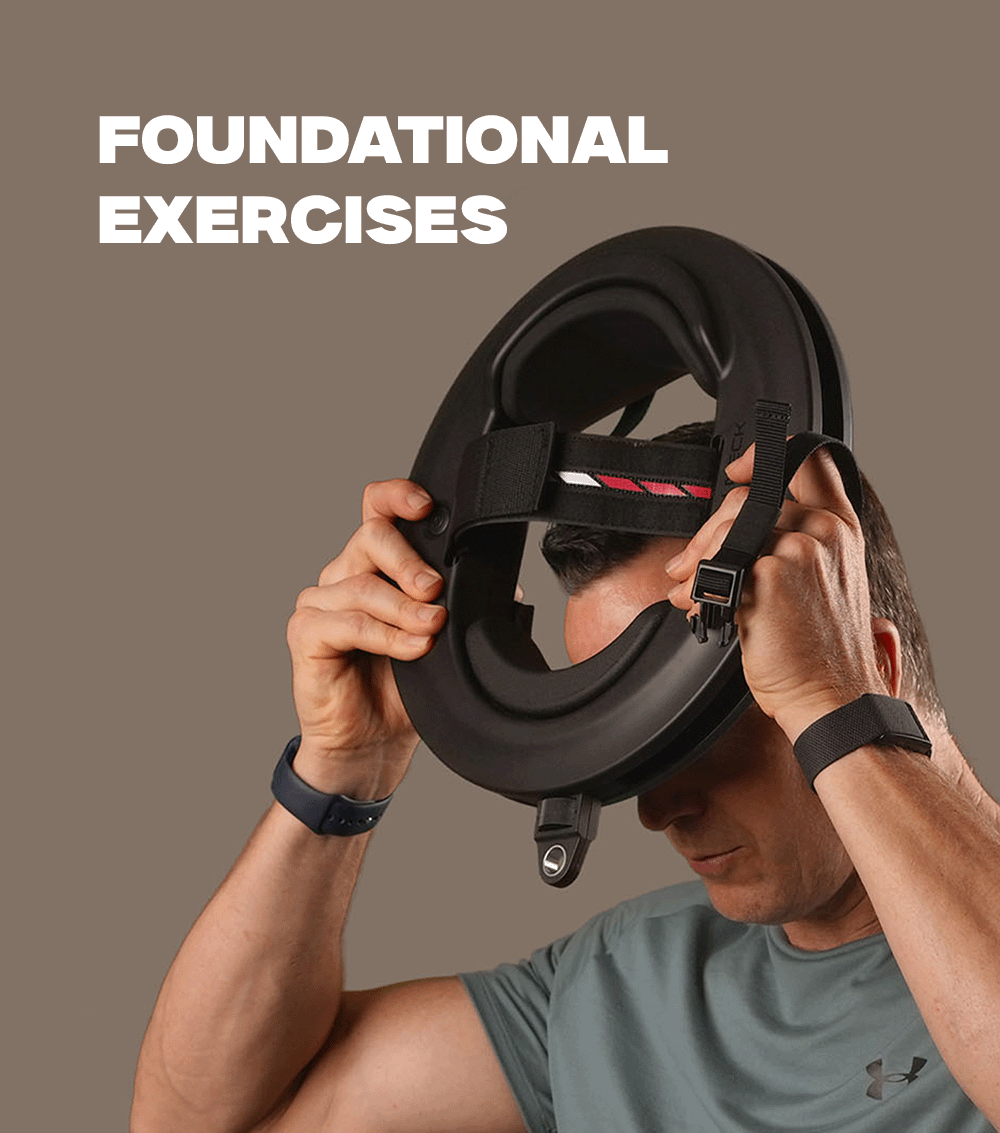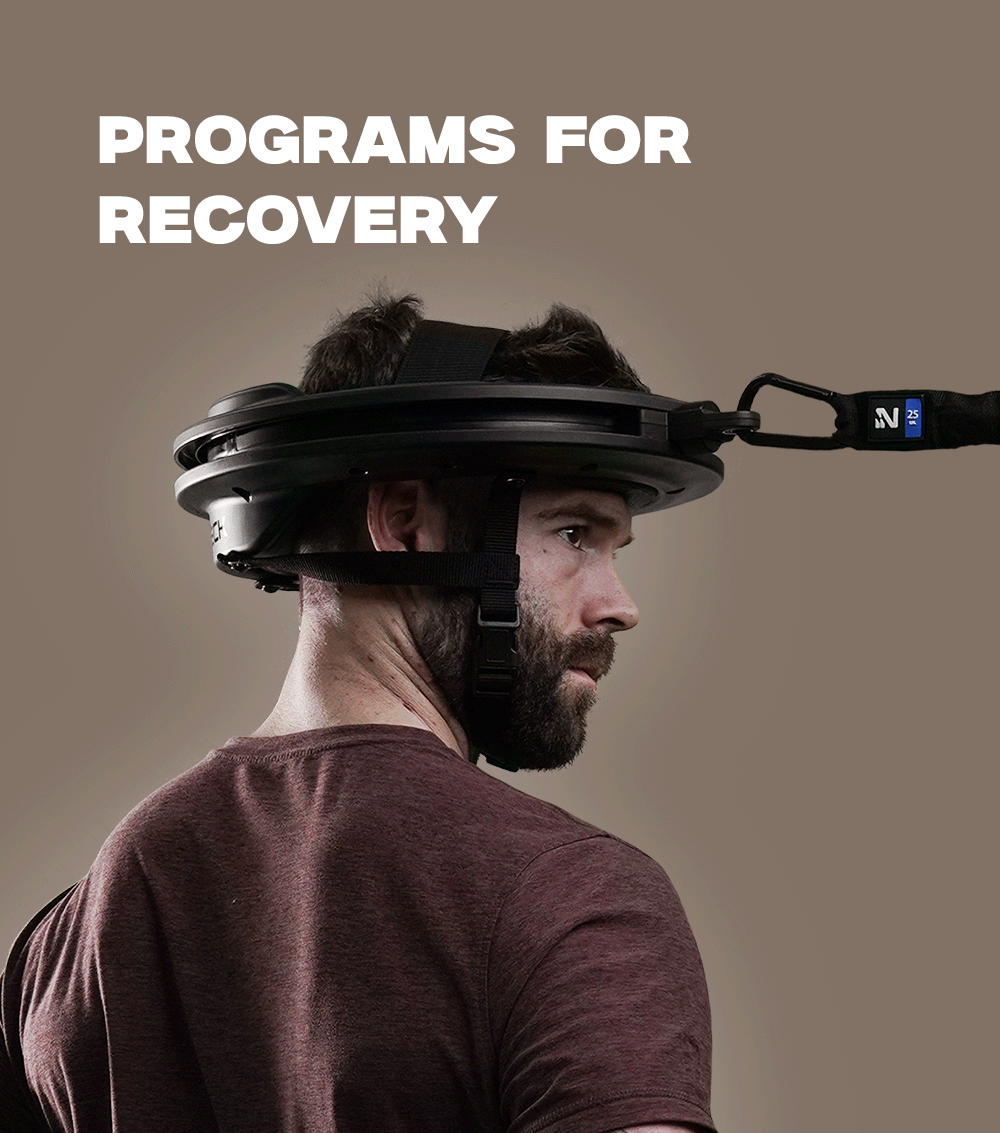Let's be honest - neck cracking is something most of us are guilty of. That popping sound is just plain satisfying. And, perhaps you feel some form of relief after cracking your neck.
But is it bad to repeatedly crack your neck? Is this a habit you need to work on eliminating?
The answer isn't as simple as yes or no. That's why today, we're going to take a deep dive into neck cracking. We'll help you understand why so many of us do this without even thinking about it. And, we'll explain what that popping sound you hear is.
Then, we'll answer the question at hand - is neck cracking bad? After that, we'll provide some better, safer alternatives to neck cracking that you can try yourself to achieve relief from neck pain or neck stiffness.
Why Do We Crack Our Necks In The First Place?
If you're like most people, you probably crack your neck without even thinking about it. It's a subconscious action that you might not even realize you're doing. Or, maybe you're fully aware of your neck cracking habit - you do it because you feel tension and pain in your neck.
There are lots of reasons people might crack their necks. Doing so releases pressure and tension - at least when you do it correctly. But, some people crack their necks as a nervous or anxious habit. They may not even realize they do it until someone points it out.
Whatever your reason for cracking your neck is, you probably have always wondered - what exactly is that popping or cracking noise?
What Exactly Is That Popping or Cracking Noise?
Some people believe that the cracking sounds they hear when cracking the neck are the bones moving and adjusting. But, that is not the case. In reality, the cause behind that popping or cracking noise is a bit more strange. To explain, let's examine the anatomy of joints quickly.
Neck joints - along with all the joints in your body - are surrounded by capsules that contain fluid. By stretching these capsules, the fluid in them puts less pressure on your neck joint. But this decrease in pressure is a catalyst. It turns the fluid in neck joints into a gas. This transformation results in that cracking sound neck popping characterized by.
Most medical professionals recognize the above theory as true. Others, however, claim there is a different cause for that cracking noise. They suggest it could be produced by a bubble being created in the joint. Whatever the case, just know that the sound associated with neck or knuckle cracking isn't the bones moving across each other - it's caused by a change in pressure affecting the fluid in your joints.
Are There Any Benefits To Cracking Your Neck?
Now that you understand a bit more of the science behind cracking your neck, it's time to address whether or not there are any real benefits to it. Will it really help you eliminate neck pain or a stiff neck? Or, is neck popping doing you more harm than good?
Unfortunately, the answer isn't as simple as you may hope. While you may achieve temporary relief from neck cracking, you could also harm yourself. The manner in which you crack your beck - and the frequency - affects whether or not it's beneficial.
Cracking Your Own Neck
If you're cracking your neck yourself - either by pushing your chin to each side or by quickly twisting your head to each side - we highly recommend you kick the habit. Cracking your own neck offers no noted benefits.
We know what you're thinking "every time I crack my neck, I experience relief and feel better - are you sure?".
Yep, it's true - there are zero documented benefits associated with cracking the neck - or any joints, for that matter. It doesn't relieve stiffness, and it won't help relieve pain.
With that said, you may experience what you believe to be temporary relief. Why? Because the sound of neck cracking has come to be known as "pleasurable". The sound alone can release endorphins, leaving you in a state of bliss. Remember, though - this is temporary. You won't be fixing the root cause of neck stiffness or neck pain.
Another potential reason some feel that neck popping offers benefits is the placebo effect. The placebo effect is a phenomenon where you imagine symptoms or relief that aren't actually present. This is really common when taking snake-oil-type supplements. You've been led to believe that something is good for you, and so your brain tricks you into thinking you're actually experiencing those benefits. The mind is a powerful thing, after all.
Getting Your Neck Cracked By A Chiropractor
On the other hand, you can get your neck joints (along with the rest of your spine) manipulated professionally by a chiropractor. Are there any benefits to this, or is this another case of too-good-to-be-true?
Chiropractic care can have benefits depending on the state of your spine. What makes this type of neck cracking different from cracking your neck yourself? Simple - chiropractors have years and years of professional medical training and education. They take a scientific approach to treating your neck pain or neck stiffness, starting with an x-ray. This x-ray reveals what is causing the tension, and the professional can then manipulate your joints accordingly.
Is Neck Cracking Dangerous?
Now that you know there are no real benefits associated with cracking your joints yourself, the question becomes - does this mean you should stop?
Just because something isn't necessarily good for you doesn't mean it's inherently bad for you. Let's finally address the question you came here with today - is it bad to crack the neck joint?
When it comes to professional joint manipulation by a chiropractor, you really have nothing to worry about. But cracking your neck on your own can result in serious issues.
Increased Pressure In Your Neck
While you seek to relieve pressure by cracking your neck, you may actually be contributing to more pressure build-up.
Think back to the popping sound you hear when cracking joints: you now know that it's caused by fluid turning into gas. This reaction creates pressure. And over time, that pressure can cause damage to your cartilage and vertebrae.
You may not feel these effects now - or even over the course of a few years. But over the course of a lifetime of joint cracking, you'll increase your risk for degenerative conditions such as osteoarthritis. This serious, irreversible condition is something you want to avoid at all costs.
The Relationship Between Neck Cracking & Strokes
Not only can joint cracking cause arthritis, but it can also contribute to an elevated risk of stroke. This sounds scary - and it is. This is why we highly encourage you to stop trying to crack your neck yourself!
When done incorrectly cracking the neck can result in CAD (cervical artery dissection). Basically, an artery in your neck tears as the result of sudden, excessive twisting. While this is a rare occurrence, it's worth noting.
Damage To The Blood Vessels In Your Neck
There is a large volume of blood vessels in your neck. While it's pretty rare, you can accidentally puncture one as a result of neck cracking. This can result in blood clotting, which comes with problems of its own. It can result in the blocking of blood flow to your brain.
Muscle Impingement or Pinched Nerves
There are also risks associated with cracking your neck that are less permanent and scary - but worth noting. These include muscle impingement or pinched nerves. If you don't know what you're doing, these are incredibly common outcomes to popping your own neck. Pinched nerves are very painful, as is muscle impingement. This can result in a stiff neck with more pain than before!
Alternatives To Cracking Your Neck To Achieve Relief From Pain & Stiffness
As you can see above, there are no real benefits to cracking your neck on your own. And, there is no shortage of risks. While you may enjoy the sound of neck cracking, and you may experience some degree of relief through the placebo effect, the answer is clear. It is bad to crack your neck yourself.
If you have neck stiffness or neck pain that you believe can be remedied through neck cracking, we highly encourage you to visit a physical therapists office or chiropractor. They can manipulate your spine correctly and safely. Or, to achieve relief, try out some of these tips:
Eliminate Causes Of Neck Tension
You crack your neck because you feel pain and tension. Instead of trying to remedy the symptoms, look to eliminate the root cause of this pain and tension. There are all sorts of causes of a stiff neck - which is why we wrote a complete guide on the subject. But, here are some things you should take a look at:
- Evaluate your posture - The leading cause of neck stiffness is poor posture. If you slouch or have a forward head posture, it pulls your neck muscles and stresses them. This is a common posture of the modern 9-5er. If you work a desk job and find yourself extending your head towards your screen, you'll develop the dreaded tech neck - a common cause of neck tension. Fortunately, we've listed the best neck posture exercise to regain proper posture.
- Take note of your sleeping situation - If you don't have a supportive mattress or pillow, or sleep on your stomach - you'll develop neck tension and wake up with a stiff neck daily. Invest in a quality mattress and supportive pillows. You spend more time in your bed than anywhere else - it's worth it. And, learn how to adjust your sleeping position to protect your neck and spine.
- Consider switching professions - If you work in manual labor, you put your muscles under constant, daily stress. Switching professions or roles to give your body the rest it needs will do wonders for tension and pain.
Deep Tissue Work
Deep tissue work is proven to be effective at eliminating stress within your muscles. Getting a massage by a certified massage therapist will help you clear up your pain and inflammation. And, you won't experience any of the risks associated with cracking your joints!
Neck Stretching
Along with getting tension pushed out of your neck muscles through deep tissue work, you can work to mobilize your neck through stretching. This will calm those agitated muscles that are causing you to want to crack your neck.
Neck Strengthening
A sore, stiff neck is oftentimes caused by weak muscles. The neck is one of the most neglected groups of muscles in the human body. So few people actually incorporate neck training into their life, which is why pain and stiffness run rampant in the human race. It's also why most people have a pencil neck.
Neck training may look a bit odd at first, but trust us - it pays off. Not only will you experience less pain and stiffness, but you'll also enjoy an increased range of motion. And, you'll develop a thicker, sturdier, more aesthetic neck. Let's face it - nobody likes the look of a thin, weak neck. Moreover, training the neck decreases your risk of neck injury such as whiplash. This is true not just of athletes - but everyday people.
So, how do you get started? Take a look at some of our favorite neck strengthening exercises. Then, grab all your neck training equipment and get started. You can use the Iron Neck device, or try and get by with a simple neck weight harness and resistance loop bands.
Final Thoughts On Neck Cracking
In closing, yes - it is bad to crack your neck on your own if you aren't careful. Just as knuckle cracking is a nasty habit that you should try to kick. If you want to manipulate your joints to achieve relief, do so professionally by getting your neck adjusted in a chiropractor's office.
Or, try some of the alternatives we've listed above to achieve relief of your sore, stiff neck. They're safer and far more effective. Don't risk doing more harm than good!






